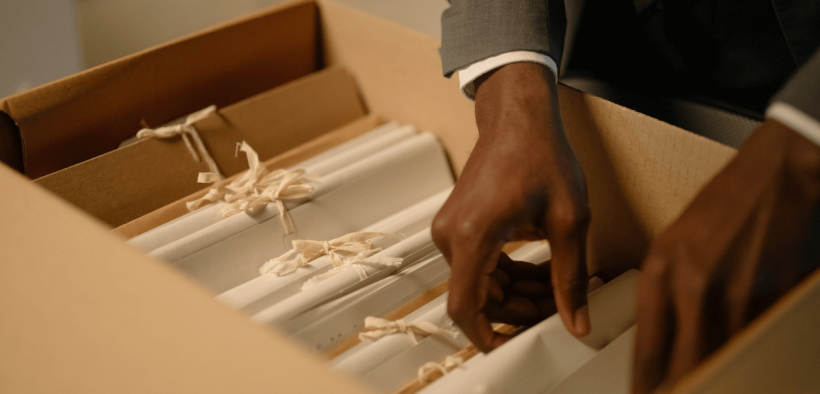Anti-corruption watchdog to begin investigating the public sector
Share

Australia’s anti-corruption watchdog will start holding politicians and officials to account in the coming months after the government’s signature legislation passed parliament.
The Senate passed the legislation on the National Anti-Corruption Commission on Tuesday, with amendments that beefed up the powers of the inspector who provides oversight of the commission.
The amendments were then ticked off in the lower house on Wednesday with multi-party support as crossbenchers failed in their attempts to lower the threshold for public hearings to be held.
The opposition and government teamed up to keep the “exceptional circumstances” test before a public hearing can be held.
Prime Minister Anthony Albanese said the establishment of an anti-corruption watchdog was a win for honesty, accountability, integrity and trust.
“Today we take an important step to rebuild trust in government, our public institutions and our democracy,” he told parliament.
“It represents an end to rorting and waste.”
The National Anti-Corruption Commission will be able to investigate conduct in the Commonwealth public sector, which can extend to MPs and their staff, as well as government employees and contractors.
The commission will operate independently from government, and will be able to start inquiries by itself, or via referrals from members of the public.
It will be overseen by a parliamentary joint committee which will require the commission to provide information about its work.
Mr Albanese welcomed the fact the opposition, crossbench and government had worked closely to improve the bill and pass it.
Independent MP Helen Haines, who had long advocated for a federal integrity body, said the passing of the bill was a happy day for democracy.
“We need to hold true to integrity in all its forms, we need to make sure that when those who hold public office do wrong, that they must be accountable for doing so,” she told reporters in Canberra.
“We have got across the finish line, but the work of integrity is never done.”
Dr Haines said there would not be a shortage of work for the commission once it was set up.
Greens senator David Shoebridge said there would be a key test for the NACC on whether it would define pork barrelling as corrupt conduct.
“Most Australians were disgusted by the use of public money for blatantly partisan purposes,” he said.
“When the NACC is up and running, I’m sure it won’t just be my office and my party that has a number of matters to be referred.”
Greens leader Adam Bandt said there would be a long list of cases the commission would examine.
“I don’t think that the new corruption commissioner, if they’re appointed soon, is going to have much of a Christmas break because there’s going to be a big workload after 10 years of one of the worst governments that we’ve seen,” he said.
The Australia Institute’s National Integrity Committee, made up of retired judges, welcomed news of the commission passing but still had issue with the high bar for public hearings.
“The NACC should not be limited to holding public hearings in exceptional circumstances only, and we recommend that the parliament revisit the commission once it is operational,” the group said in a statement.
With AAP
Eliza is a content producer and editor at Public Spectrum. She is an experienced writer on topics related to the government and to the public, as well as stories that uplift and improve the community.




Today’s Pick
11th Annual Aus Goverment Data Summit
April 1, 2025
7th Annual NZ Government Data Summit
May 7, 2025
3rd Public Sector Comms Week
May 14, 2025
Subscribe
We send emails,
but we do not spam
Join our mailing list to be on the front lines of healthcare , get exclusive content, and promos.
AI appointment Australia Australian boost boosts business businesses covid-19 cyber cyber attack cyber security cybersecurity data data breach data management defence Digital employment enhance enhances fraud funding governance government grants infrastructure Innovation Lockdown management new zealand NSW NZ online privacy public Public Sector queensland renewable energy scams security Social Media Technology telecommunications victoria
-

Understanding and building your digital strategy
Digital Government, Opinion
-

Featured Leader: Jamie Morse on multi-channel strategies for communication
Communications, Featured Leader
-

Featured Leader: Tegan Tembe of NSW Treasury on creating solid planning strategies and processes
Featured Leader
-

Wirraka Maya Health Service improves patient care with My Health Record
Learning
Show More-

Effects of ineffective communication in the workplace
Communications, Personal Development
-

7 ways you can enhance your personal development skills
News, Personal Development
-

5 advantages of working in the public sector
News, Personal Development, Professional Development
-

7 causes of communication issues in the workplace
Communications, News, Personal Development
Show MoreLast Viewed
WA Government adopts cloud-based system for grant application
Australian Gov enacts new measures to help flood-affected communities
Liberal and National Government invests $1.3B in telecommunications
Victorian Government launches $2.2M initiative to support Agtech
Featured Leader: Ken Maxwell of xAmplify on government using digital services